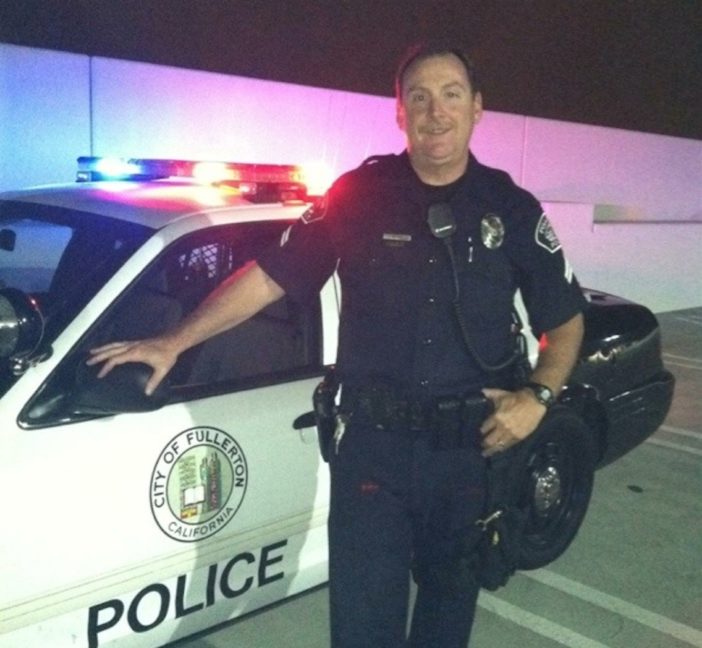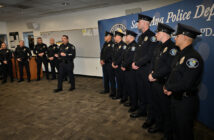Fullerton Police Cpl. Michael Bova was at St. Jude Hospital following up on an incident, when he heard a distressing call come through.
A baby had fallen into a pool and was not breathing.
Bova looked at the location and realized it was only a mile from the hospital.
“I knew I was a lot closer than the units that were responding,” he said this week about the June 11 crisis.
So Bova rushed to the home. In the backyard, he saw the mother of the 1-year-old child attempting resuscitation while on the phone with dispatchers.
“The baby was blue, lifeless and not breathing,” Bova said.
Bova took over chest compressions for about two to three minutes before paramedics arrived and loaded the baby into an ambulance.
At St. Jude, hospital staff revived the baby. The baby was later taken to CHOC and was awake and breathing by the next day.
“They didn’t think there would be any long-term problems with the child,” Bova said. “Two good things came out of this. First, the child survived. The other thing is it allows for people to be reminded that pool safety is important throughout the year not just in the summer months.”
Below are American Red Cross tips for pool safety:
– Secure your pool with appropriate barriers. Completely surround it with a 4-feet high fence or barrier with a self-closing, self-latching gate. Place a safety cover when not in use and remove ladders or steps. Consider installing a pool alarm.
– Keep children under active supervision at all times. Designate a responsible person to watch the water when people are in the pool—never allow anyone to swim alone. Have young or inexperienced swimmers wear a U.S. Coast Guard-approved life jacket.
– Ensure everyone knows how to swim.
– Establish and enforce rules such as “no diving,” “stay away from drain covers,” “swim with a buddy” and “walk please.”
– Ensure everyone in the home knows how to respond to aquatic emergencies by having appropriate safety equipment and taking water safety, first aid and CPR courses.
 Behind the Badge
Behind the Badge



